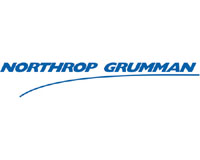| . |  |
. |
Paris (UPI) Dec 7, 2009 After years of delays, the Airbus A400M, designed to replace aging military cargo carriers, is set to take off on its maiden flight this week. The A400M is one of Europe's most ambitious defense projects, and any flight trial -- the maiden takeoff is expected as early as Wednesday -- would give the company a much-needed boost. The project is running nearly four years late, exceeding the initially forecast cost of $29.7 billion. Part of European Aeronautics Defense and Space Co., Airbus has said that ground tests were progressing satisfactorily at its facility in Seville, Spain, and that a six-man crew had been picked for the test take off. Still, dogged by a string of technical problems, many countries have begun to tire of the company's rolling delays. In May 2003, EADS agreed with seven NATO countries to build 180 new transport planes, hailing the deal as a model of Europe's integration. At the time, the industrial conglomerate agreed to deliver the first A400M this year and swallow any budget overruns. Yet as delays mounted and costs soared, EADS insisted on a renegotiation of the contract. Engineers also, focused on troubled passenger jets, letting work on the A400M slip. German and French officials have since then given the company until the end of the year to deliver the aircraft, while South African has pulled the plug on its order. Britain, also, has begun mulling the prospect of switching its business to U.S. Manufacturers, according to defense analysts. The only export order remaining is Malaysia, for four of the 180 planes set to be manufactured. Should the deal be canceled, industry experts say EADS will be forced to repay about nearly $8.43 billion in development costs that the governments have invested. An EADS spokesperson quoted by the Wall Street Journal said the company "faces a wide range of possible outcomes" for the ultimate financial impact of the deal. Keeping the A400M project going has Airbus paying $207 million a month. The company has made provisions for a $3.5 billion loss from the project. "Politically, it is harder to cancel an aircraft once it has flown" Nick Cunningham, an analyst with Evolution Securities was quoted as saying by the Financial Times. "It helps make it more credible that the whole things is going to go ahead." Much of the problems facing the new transport aircraft center on the complexity of its massive engines -- the first new turbo propellers built in Europe in years. The engines are being developed by a European consortium that includes France's Snmecma and Britain's Rolls-Royce company. The world's only other military transport planes are produced by U.S. makers Boeing and Lockheed Martin Corp. Their counterparts, however, are either too big or too small. "There is huge demand for this aircraft," EADS Chief Executive Louis Gallois has said. Share This Article With Planet Earth
Related Links The Military Industrial Complex at SpaceWar.com Learn about the Superpowers of the 21st Century at SpaceWar.com
 Northrop warns against plane contract
Northrop warns against plane contractWashington (UPI) Dec 3, 2009 Northrop Grumman has warned the Pentagon that it will pull its bid out of a multibillion-dollar contest to replace the Air Force's aging fleet of air refueling tankers unless major changes were made to the competition rules. The threat set Pentagon officials scrambling to salvage the contest with Robert Gates, the U.S. defense secretary, telling the U.S. Senate Armed Services Committee ... read more |
|
| The content herein, unless otherwise known to be public domain, are Copyright 1995-2009 - SpaceDaily. AFP and UPI Wire Stories are copyright Agence France-Presse and United Press International. ESA Portal Reports are copyright European Space Agency. All NASA sourced material is public domain. Additional copyrights may apply in whole or part to other bona fide parties. Advertising does not imply endorsement,agreement or approval of any opinions, statements or information provided by SpaceDaily on any Web page published or hosted by SpaceDaily. Privacy Statement |